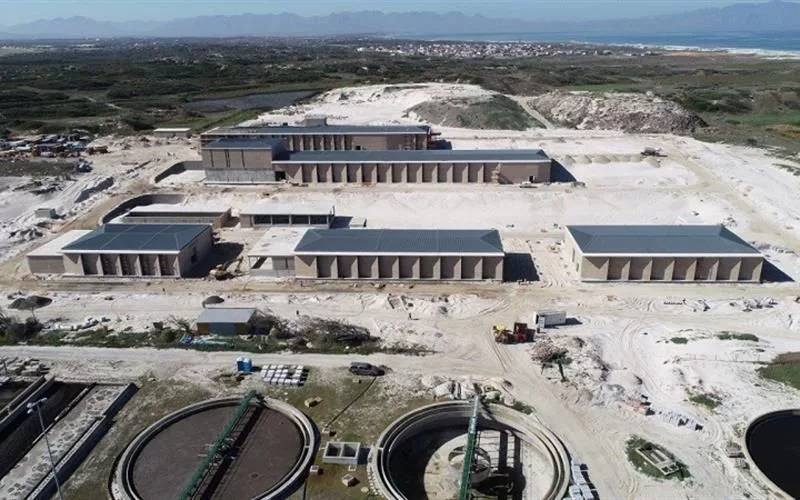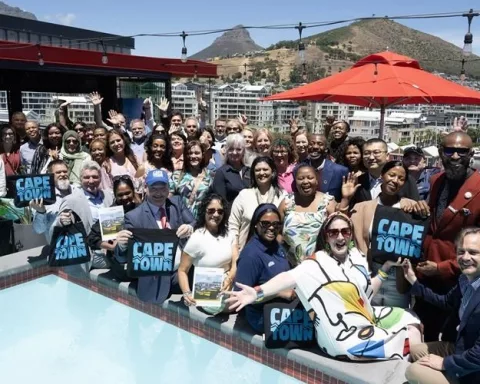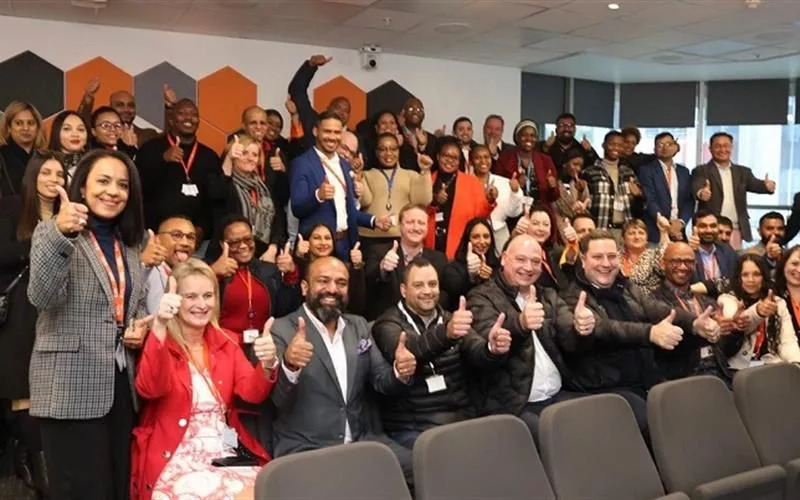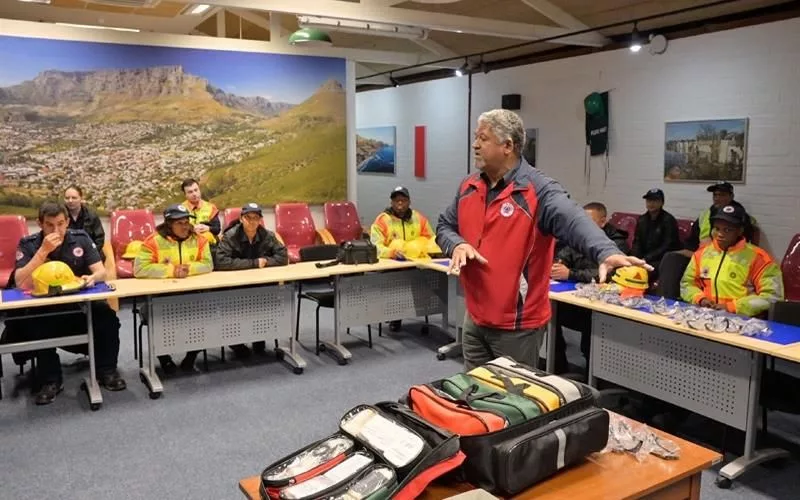Cape Town has received a massive R5 billion budget for water and sanitation services in the 2024/2025 fiscal year. The funds will be used to secure the city’s water future, ensure access to high-quality drinking water, address sewer overflows, and provide satisfactory sanitation services in informal settlements. The investment demonstrates the city’s dedication to its residents and its readiness to tackle future challenges with innovative and sustainable solutions. The capital budget allocation is diverse, addressing a variety of needs, including proactive measures for sewer overflows, flood mitigation projects, and pollution reduction initiatives.
Cape Town received a R5 billion budget for water and sanitation services in the 2024/2025 fiscal year. The funds aim to secure the city’s water future, ensure access to high-quality drinking water, address sewer overflows, and provide satisfactory sanitation services in informal settlements. The capital budget allocation is diverse, addressing a variety of needs, including proactive measures for sewer overflows, flood mitigation projects, and pollution reduction initiatives. The investment showcases the city’s commitment to its residents and its preparedness to approach the future with innovative and sustainable solutions.
The Announcement and Its Impact
As August 2024 dawned, Cape Town was abuzz with the thrilling news of a substantial capital boost to its vital water and sanitation sectors. The city’s Water and Sanitation Directorate had just acquired the green light for their R5 billion capital budget for the 2024/2025 fiscal year. This substantial financial commitment was met with enthusiasm by the city’s inhabitants, as it pledged to fuel major priorities that would have a direct beneficial impact on them.
The allocation of funds aimed at securing Cape Town’s water future, ensuring access to high-quality drinking water, addressing sewer overflows, and providing satisfactory sanitation services in informal settlements. The total budget of R18 billion for the fiscal year, comprising R5 billion for capital expenses and R13 billion for operational costs, reflected the city’s dedication to upgrading water and sanitation services in its communities.
The 2024/2025 capital budget is noticeably larger than the R3.3 billion from the past fiscal year, which was directed towards water and sanitation services, bringing considerable benefits to residents and the city. Councillor Zahid Badroodien, the Mayoral Committee Member for Water and Sanitation, expressed his appreciation towards residents for their contributions to water and sanitation services, assuring them that their water tariffs would be used to provide and maintain dependable services in Cape Town for the foreseeable future.
Budget Allocation and Climate Change Challenges
The capital budget allocation for the 2024/2025 period is diverse, addressing a variety of needs. An example of this is the R38.25 million earmarked for the installation of new taps and toilets in informal settlements, thereby improving the existing services.
In response to the escalating challenges of climate change and water shortages, Cape Town has turned to cutting-edge alternatives for its water supply. At present, about 98% of drinking water is sourced from surface water. Nevertheless, projections indicate that by 2040, groundwater, desalination, and water recycling projects will make up a full 25% of the city’s water supply. The directorate has plans to introduce alternative water sources to cater to a burgeoning population and augment the supply by 300 million liters of water from novel sources daily by 2030.
A sum of R445 million has been set aside for major water resilience projects, with an emphasis on aquifer initiatives. Other projects include the Cape Flats Aquifer Recharge, Atlantis Aquifer, and Table Mountain Group Aquifer. These alternative water sources will not only cater to the population’s needs but also aid in preserving the city’s unique biodiversity by combating invasive plant species in catchment areas.
Proactive Measures and Concluding Thoughts
In a proactive response to the ongoing issue of sewer overflows, an allocation of R1 billion has been made for various preventative strategies. These include upgrades and refurbishments of sewer pump stations, the replacement of 100km of sewer pipes, and efforts to manage sewer spills by advancing bulk sewers.
Additionally, R127 million has been assigned for the installation of generators and UPS for sewer and water pump stations and wastewater treatment plants, enhancing resilience during periods of load-shedding. R110 million has been allocated for flood mitigation projects, while R27 million has been set aside for pollution reduction initiatives. All these endeavors aim to improve waterways and cut down the risk of flooding.
In summary, the significant R5 billion investment in Cape Town’s water and sanitation services is a tangible display of the city’s commitment to its residents. By prioritizing the provision of clean, reliable drinking water, dignified sanitation services, and efforts to protect the environment and enhance inland water quality, Cape Town is showcasing its preparedness to approach the future with innovative and sustainable solutions.
What is Cape Town’s budget for water and sanitation services in the 2024/2025 fiscal year?
Cape Town has received a R5 billion budget for water and sanitation services in the 2024/2025 fiscal year.
What will the funds be used for?
The funds will be used to secure the city’s water future, ensure access to high-quality drinking water, address sewer overflows, and provide satisfactory sanitation services in informal settlements.
How does the investment demonstrate the city’s commitment to its residents?
The investment showcases the city’s commitment to its residents by providing them with improved water and sanitation services and tackling future challenges with innovative and sustainable solutions.
What are some of the diverse needs that the capital budget allocation addresses?
The capital budget allocation is diverse, addressing a variety of needs, including proactive measures for sewer overflows, flood mitigation projects, and pollution reduction initiatives.
What is Cape Town’s response to climate change and water shortages?
Cape Town has turned to cutting-edge alternatives for its water supply, including groundwater, desalination, and water recycling projects. The city plans to introduce alternative water sources to cater to a burgeoning population and augment the supply by 300 million liters of water from novel sources daily by 2030.
What proactive measures are being taken to address sewer overflows?
An allocation of R1 billion has been made for various preventative strategies, including upgrades and refurbishments of sewer pump stations, the replacement of 100km of sewer pipes, and efforts to manage sewer spills by advancing bulk sewers.











